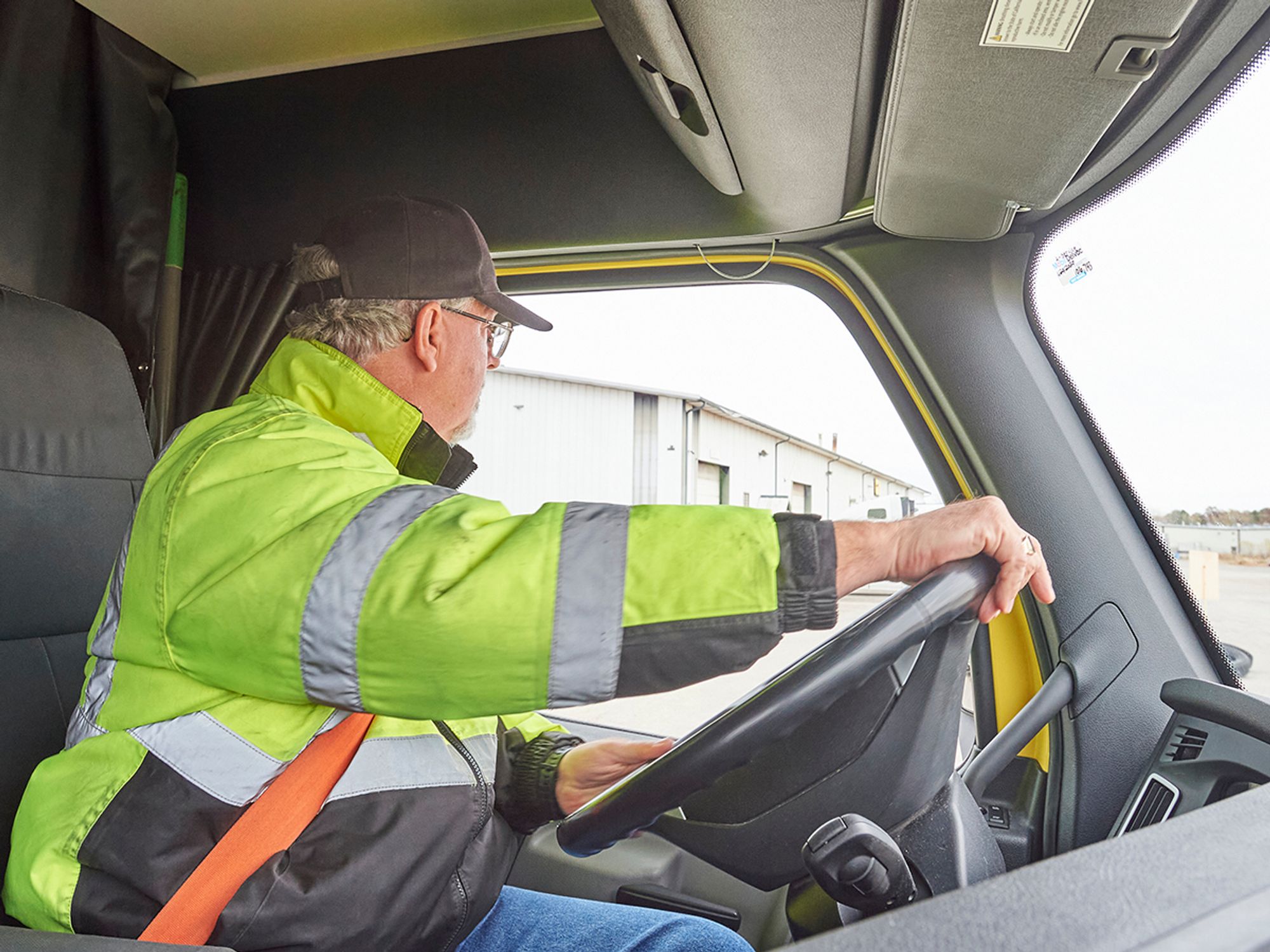InstituteCommercial drivers license CDLCommercial learners permit CLPEntry-Level driver trainingEntry-level driver trainingCommercial drivers license CDLCDL endorsements and restrictionsUSAEnglishAnalysisFocus AreaIn Depth (Level 3)
Is anyone exempt?
['Commercial drivers license CDL', 'Entry-Level driver training']

- States must grant an exemption from the commercial driver's license (CDL) requirement to certain military drivers operating commercial motor vehicles for a military purpose and drivers of “covered farm vehicles.”
- States may grant an exemption from the requirement, under certain circumstances to farmers, firefighters, emergency responders, and drivers of local snow or ice removal vehicles.
- States may grant waivers from the knowledge and skills portion of the test for farm-related service industries, waive the hazardous materials endorsement requirement for drivers transporting less than 1,000 gallons of diesel fuel, and issue restricted to Alaska drivers to drive on roads not connected to any state road.
A limited set of drivers of commercial motor vehicles (CMVs) are exempt from needing a commercial driver’s license (CDL), but the list is smaller than the list of drivers who are exempt from other Federal Motor Carrier Safety Regulations (FMCSRs). For example, school bus drivers or drivers working for a government agency are NOT exempt from needing CDLs, even though they may be exempt from most other FMCSRs. In some cases, states have the option to exempt certain drivers from needing a CDL or commercial learner’s permit (CLP) if they so choose. The following table summarizes these exemptions (refer to 383.3 for details):
| Driver type | CDL exemption |
|---|---|
| Military drivers | The states must exempt drivers who operate CMVs for military purposes. This applies to active-duty military personnel; members of the military reserves; members of the national guard on active duty (including personnel on full-time national guard duty, personnel on part-time national guard training, and national guard military technicians (civilians who are required to wear military uniforms)); and active-duty U.S. Coast Guard personnel. This does not apply to U.S. Reserve technicians. |
| Covered farm vehicles | States must exempt drivers of “covered farm vehicles” (as defined in 390.5) from the CDL requirements. |
| Farmers | A state may exempt drivers of farm vehicles that are controlled and operated by a farmer (including employees or family members), used to transport either agricultural products, farm machinery, farm supplies, or both to or from a farm, are not used in the operations of a common or contract motor carrier, and are only used within 150 miles of the farmer’s farm. This waiver is only valid in the driver’s home state unless there is a reciprocity agreement with adjoining states. |
| Firefighters and emergency responders | A state may exempt firefighters and other persons who operate CMVs that are necessary for the preservation of life or property or the execution of emergency governmental functions, are equipped with audible and visual signals, and are not subject to normal traffic regulation. This includes fire trucks, hook and ladder trucks, foam or water transport trucks, police SWAT team vehicles, ambulances, or other vehicles that are used in emergency response. This waiver is only valid in the driver’s home state unless there is a reciprocity agreement with adjoining states. |
| Snow or ice removal | A state may exempt drivers employed by an eligible unit of local government, operating vehicles within the boundaries of that unit for the purpose of removing snow or ice from a roadway by plowing, sanding, or salting, if the normal driver is not available and additional assistance is needed due to a snow or ice emergency. This waiver is only valid in the driver’s home state unless there is a reciprocity agreement with adjoining states. |
| Alaska drivers | The state of Alaska may issue restricted CDLs to drivers operating exclusively over roads that are not connected to the state highway system and that are not connected to any roadway with an average daily traffic volume greater than 499. These restricted licensees do not have to meet the same testing standards as other drivers. |
| Farm-related service industries | A state may waive the required knowledge and skills tests and issue restricted CDLs to employees of farm-related service industries including agri-chemical businesses, custom harvesters, farm retail outlets and suppliers, and livestock feeders. These drivers must meet strict eligibility requirements.See 383.3(f). In addition, a state may waive the requirement for a hazardous materials endorsement for such drivers if they hold a Class A CDL and are transporting diesel in a quantity of 1,000 gallons or less in a placarded vehicle. See 383.3(i). |
| Fireworks | A state may waive the required hazardous materials knowledge tests and issue restricted CDLs to part-time drivers operating CMVs under 10,001 pounds, from June 30 through July 6, transporting less than 500 pounds of fireworks. See 383.3(g). |
| Motorhome and recreational vehicle (RV) driveaway | A special exemption exists for employees of U.S. driveaway companies, RV manufacturers, and RV dealers transporting RVs between manufacturing sites and dealer locations and for movements prior to first retail sale. A CDL is not required for RVs with gross vehicle weight ratings of 26,001 pounds or more if the actual weights stay below 26,001 pounds. This exemption is effective from April 6, 2022, to April 6, 2027. |
